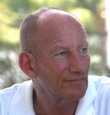As a mental health counselor, I've often worked with depressed individuals. Regardless of whether the individual is a child, adolescent or adult, I often play a little word game with them to help me get a better understanding of their depression. The word game goes something like this... "I'm going to ask you a few very simple questions and then I'm going to ask you a difficult question. OK?" The person often responds in the affirmative. "OK, what is the opposite of hot?" They rather quickly respond "cold." "And what is the opposite of "up" to which they respond "down." And then I ask, "What is the opposite of depression" to which their eyes go up left, down right, up right, down left...They are thinking and they do not easily come up with an answer. After a short while, well over ninety percent say "happiness." I've asked the same kind of question for other emotions. What is the opposite of anger? What is the opposite of sadness? What is the opposite of frustration? What is the opposite of confused? What is the opposite of anxious? What is the opposite of miserable? What is the opposite of scared? And guess what the answer is? Happiness. Happiness is the opposite of just about any negative emotion.
Our mind seems to be built in such a way that much of our meanings in life are made by contrasts and comparisons. We understand things as they relate (or don't' relate) to other things. Opposites are the ultimate contrast. Hot water has meaning in relation to cold water. Daylight has meaning in relation to night time. Man has meaning in relation to woman, children to adults, students to teachers....And, more importantly, these opposites are not isolated from one another, they are connected just like the heads and tails of a coin. Our positive and negative emotions are like two sides of a coin. If a person is feeling depressed, they are capable of feeling the opposite of that, whatever that feeling is for that person, because depression is connected to that feeling. Granted, that connection is way over on the other side. But, nevertheless, it is connected.
The problem is that so many of us have an impoverished emotional vocabulary we are not able to label the opposite of our negative emotion correctly. For example, let's say you are complaining of boredom. You are asked what, for you, is the opposite of boredom and you say happiness. But, it's far more likely that excitement is the opposite of boredom but you simply do not have the awareness of a proper vocabulary to verbalize that feeling. It's as if we have all been hypnotized to believe that happiness is the answer to all of our woes; happiness is the one panacea for all of our mental problems. But, there is a much greater wealth of positive emotions and it's a shame to be limited to something as conventional as happiness - whatever that might mean to you.
In an effort to help the reader develop a more thorough vocabulary of emotional states, the following is a partial list of words that represent positive emotions. Affectionate, alert, amazed, amused, aroused, blissful, calm, carefree, cheerful, comfortable, confident, contented, curious, delighted, eager, ecstatic, elated, enchanted, energetic, enthusiastic, excited, fascinated, glad, glorious, grateful, inquisitive, inspired, intrigued, jubilant, mellow, mirthful, optimistic, perky, pleased, proud, radiant, refreshed, relaxed, satisfied, secure, serene, splendid, stimulated, thankful, thrilled, tranquil, trusting, upbeat and wonderful.
There's an equally rich list of negative emotions as well. Afraid, agitated, aloof, angry, anguished, annoyed, anxious, apathetic, ashamed, bitter, dejected, depressed, despondent, discouraged, disgusted, distressed, disturbed, dull, embarrassed, exhausted, fearful, frightened, frustrated, furious, gloomy, guilty, helpless, horrified, hostile, impatient, indifferent, irritated, jealous, lazy, lethargic, lonely, mad, miserable, morose, mournful nervous, perplexed, pessimistic, reluctant, sad, scared, terrified, woeful and worried.
Now, if you were to be asked "what is the opposite of embarrassed?" you might be able to respond with something a little more thoughtful than merely "happiness."
Ken Fields is owner and principle counselor at Open Mind Counseling, http://www.openmindcounseling.com He is a nationally certified licensed mental health counselor with over 25 years of experience in working with individuals, couples, families and groups. He has been a crisis intervention counselor, has taught at university and has been an administrator in a human service agency. He has taught public classes in stress and anger management, mediation, communication and negotiation, self image psychology, motivation and goal setting and crisis prevention. Mr. Fields now offers online communication coaching and counseling specializing in cognitive behavior and family systems therapy.

Post new comment
Please Register or Login to post new comment.